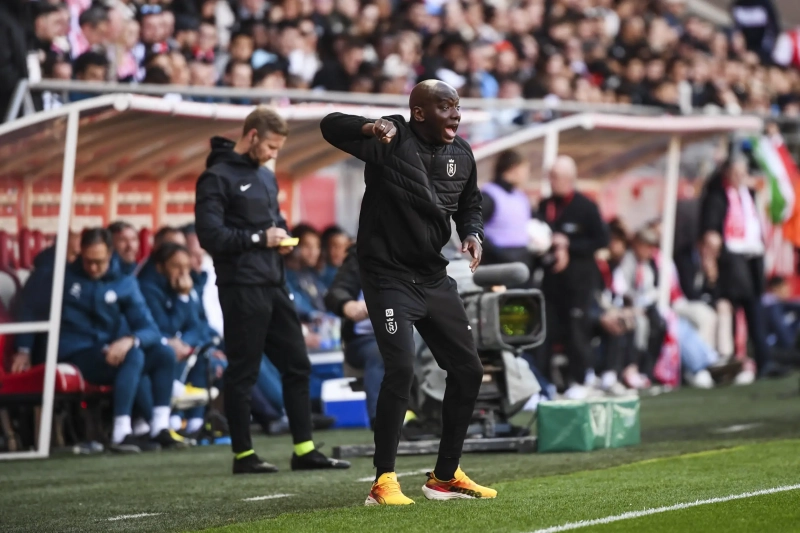Samba Diawara will take his place on the touchline at the Stade de France this weekend, overseeing Stade de Reims in a Coupe de France final—his 22nd match as a professional head coach. For a man who never sought the spotlight, it’s a moment as unexpected as it is historic.
Appointed head coach of Reims on 3 February following the dismissal of Luka Elsner, Diawara has endured a turbulent few months. Despite limited success in Ligue 1—Reims face a tense relegation play-off against FC Metz—he has steered the team through a remarkable cup run, overcoming Bourgoin, Angers, and Cannes to reach the club’s first final since 1977. Victory over Paris Saint-Germain would etch his name into the annals of Reims history.
Yet Diawara, 47, remains an enigma. Quiet, humble, and often described as “the man in the shadows,” his path to the top job has been anything but conventional. “He never chased the number one role,” said Will Still, the former Reims head coach who previously worked alongside Diawara both in Belgium and France. “But when the club needed him, he stepped up without hesitation—and he’s done it professionally and with heart.”
Born in Mali, Diawara spent his playing career as a central defender in France and Belgium before shifting his focus to coaching, where he made a name for himself not with headlines, but through dedication and tactical acumen. His reputation as a loyal, meticulous assistant saw him serve at clubs including Charleroi and Anderlecht, earning the admiration of those he worked with.
Felice Mazzu, who coached Diawara at Charleroi, was never in doubt about his potential. “In terms of his knowledge, charisma and what he brings to a team, it doesn’t surprise me he’s made it this far. But Samba would always say, ‘I’ll stay assistant for a while—I don’t see myself as the main man.’”
That humility has defined his career. According to former colleague Philippe Simonin, “He wasn’t consumed by ambition. Things came to him naturally. He worked, he cared, and people recognised it.”
Karim Belhocine, another former coaching partner, recalls pushing Diawara to believe in himself. “I told him he would be better than us, that he could coach in Ligue 1 and even a national team one day. He’s incredibly intelligent, both tactically and emotionally. He never cheats. He understands when to speak, when to stay quiet. That’s a rare gift.”
Despite taking on the lead role under challenging circumstances, Diawara has not tried to reinvent the wheel. “The football Reims is playing right now isn’t his football,” Still noted. “But he’s adapted and delivered results under pressure.”
Those close to him suggest this may just be the beginning. With his deep knowledge of the game, passion for player development, and clear coaching philosophy—one shaped by close study of progressive coaches like Roberto De Zerbi—there is growing belief that Diawara has more to offer.
“I don’t think we’ve seen the full extent of what he’s capable of yet,” said Simonin. “I’m looking forward to watching him build something of his own.”
As for Diawara himself, he seems ready to embrace the change. Speaking recently to L’Équipe, he admitted: “I’m showing a different side of myself now, and I’ll own it. I’ve always wanted to be the best assistant I could be. But now, I’m determined to be a head coach.”
Reims may be on the brink of relegation or of cup glory—or both—but whatever the outcome, Samba Diawara’s quiet ascent from the backroom to the frontline has already become one of French football’s most compelling stories.











